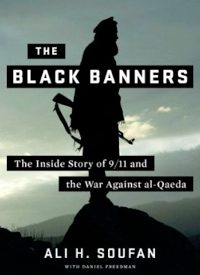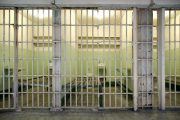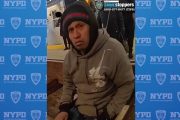
"For about a minute I stared at the pictures and the report, not quite believing what I had in my hands," Soufan has written in his just-released memoir, The Black Banners: The Inside Story of 9/11 and the War Against Al Qaeda. "My whole body was shaking." Had the material, documenting an al-Qaeda meeting in Malaysia in January 2000, been combined with information from the investigation in the bombing of the U.S.S. Cole that same year, he believes, the suicide mission to hijack airplanes in the United States and fly them like missiles into key commercial and government buildings might have been discovered and thwarted.
It was, even then, an old story but it suddenly had tragic consequences of a magnitude that could not be ignored. "One of the first things I learned when I came into this town," former Sen. Bob Kerrey of Nebraska recalled while a member on the 9/11 Commission investigating terrorist attacks on the United States, "was that CIA and FBI don't talk to each other." But the charges in Soufan's book, as recounted in Sunday's New York Times, go beyond tales of turf wars, excesses of bureaucracy, or institutional rivalry. Soufon, the Times reports, accuses the CIA of withholding key documents and photographs of al-Qaeda operatives, despite repeated requests from the FBI and then lying about it to the 9/11 Commission. And who knows what else he might have said? Ironically the book has been published through a collaboration between the ex-G-Man and the very agency he is indicting. Soufan submitted the book to the CIA for redacting of classified information. It's as if Joe McCarthy had written a book about security breaches in the government and then turned it over to Eisenhower for publication.
CIA spokesman Preston Golson told the Times the redactions were only to protect classified information. "With all due respect to Mr. Soufan, the Central Intelligence Agency has a very different assessment, as you might expect, on these events," Golson added. He described as "baseless" the accusation that the agency "purposely refused to share critical lead information on the 9/11 plots."
But the agency and the bureau appear to have been frequently at odds over the obtaining as well as the sharing of information. A CIA agent had to go against her boss's order to allow Soufan and his colleagues 45 minutes to interrogate Ramzi Binalshibh, one of the 9/11 conspirators, and another prisoner, he wrote. The investigators learned of a plot to bomb an oil tanker off the Yemini port of Al Mukalla. But their memo was ignored, Soufan said, and a few weeks later a French tanker was attacked, with a crew member killed and 12 others wounded.
Soufan found the military high command an obstacle when he was interrogating a prisoner who once carried money for bin Laden. After giving some information, the prisoner said he would tell the rest of his story if allowed to make a phone call to his family. The Pentagon refused, the questioning ended, and Soufan believes he lost a possible lead to finding bin Laden.
Differences between the CIA and FBI reached a breaking point on methods of interrogation, with the agency employing harsh physical and psychological methods, including waterboarding, and the FBI preferring less drastic measures. A native of Lebanon, Soufan used his Middle East background and fluency in the Arabic language to build a rapport with terrorist suspects, gaining extensive information about al-Qaeda, he said. He sparred with them over interpretations of the Koran and would trick them into revealing information by telling them their associates had already confessed. Rejecting the techniques the agency sometimes employed, the director of the FBI banned his agents from participating in CIA investigations, Soufan said, leaving the bureau without information it might have obtained from direct contact with the terrorists.
"Professional interrogators, intelligence operatives and investigators were marginalized, and instead of tried and tested methods being used, faith was placed in E.I.T.'s," he wrote, referring to what are officially called Enhanced Interrogation Techniques. In his recently released memoir, former Vice President Cheney calls them "Tough interrogations" and insists that they "worked." Former Marine Corps Commandant Charles Krulak and Joseph P. Hoar, a former commander in chief of U.S. Central Command, have pointed out, "They have another name under the Geneva Conventions: war crimes." Writing in Politico, the veteran military commanders did not hesitate to describe the "tough interrogations " approved by Cheney — and President George W. Bush and Donald Rumsfeld, the Defense Secretary who told interrogators to "take the gloves off" — as torture and a stain on the nation's honor and corruption of its values. "As Human Rights First details in a coming report," they wrote, "more than 200 people died in U.S. custody, and more than a few were tortured to death. Many others, perhaps thousands — how many no one will likely ever know — endured severe physical and emotional wounds."
As a practical matter, they claim, despite the former Vice Presidents confident assurances, such methods did not and will not work. "Torture sometimes gets detainees to talk," they wrote. "What it doesn't do is get them to tell the truth. They will say anything to try to make the pain stop. On numerous occasions, torture produced faulty intelligence that led the United States down the wrong path," they wrote. And, they say, it has made Americans, including those serving in our armed forces, less, not more, safe. "It alienated would-be allies and fueled Al Qaeda's recruiting efforts. Make no mistake: Torture got U.S. soldiers killed."
Cheney, they noted, claims that Khalid Sheik Mohammed "became a fount of information," after being subjected to harsh interrogation including waterboarding, but he doesn't say what valuable information the "enhanced interrogation" produced.
"The truth is that over the past decade, the most important intelligence coups — those that led to capture of Saddam Hussein and the elimination of Abu Musab al-Zarqawi and Osama bin Laden — came about because professional interrogators used innovative, legal and moral techniques," Krulak and Hoar wrote.



